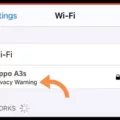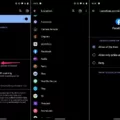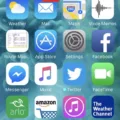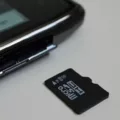The iPhone X Max is a powerful and highly advanced smartphone that offers a range of features and capabilities. However, like any device, it is not immune to performance issues. One common problem that iPhone X Max users may encounter is slow internet speeds.
There can be several reasons why the internet on your iPhone X Max may be slow. One possible cause is a weak or unstable Wi-Fi connection. If you are connected to a Wi-Fi network that has a low signal strength or is experiencing interference, it can lead to slow internet speeds. To fix this issue, you can try moving closer to the Wi-Fi router or restarting your router to improve the signal.
Another possible reason for slow internet on your iPhone X Max is an outdated or buggy iOS software. Apple regularly releases software updates that include bug fixes and performance improvements. Make sure that your iPhone X Max is running the latest version of iOS by going to Settings > General > Software Update. If an update is available, download and install it to potentially resolve any internet speed issues.
Additionally, the problem may lie with the specific app or website that you are trying to access. Some apps or websites may have slow servers or be experiencing high traffic, which can result in slower loading times. In this case, you can try accessing the internet through a different app or website to see if the issue persists.
It is also worth checking if your iPhone X Max has sufficient storage space. A lack of storage can impact the performance of your device, including internet speeds. To check your storage space, go to Settings > General > iPhone Storage. If your storage is nearly full, consider deleting unnecessary files or apps to free up space.
Lastly, if none of the above solutions work, you can try resetting your network settings. This will remove any saved Wi-Fi networks, VPN settings, and other network-related configurations. To do this, go to Settings > General > Reset > Reset Network Settings. Keep in mind that this will also remove any Wi-Fi passwords you have saved, so make sure you have them handy before proceeding.
Slow internet on your iPhone X Max can be caused by various factors such as a weak Wi-Fi connection, outdated software, problematic apps or websites, limited storage space, or network settings. By troubleshooting these potential issues, you can hopefully improve the internet speed on your iPhone X Max and enjoy a smoother browsing experience.
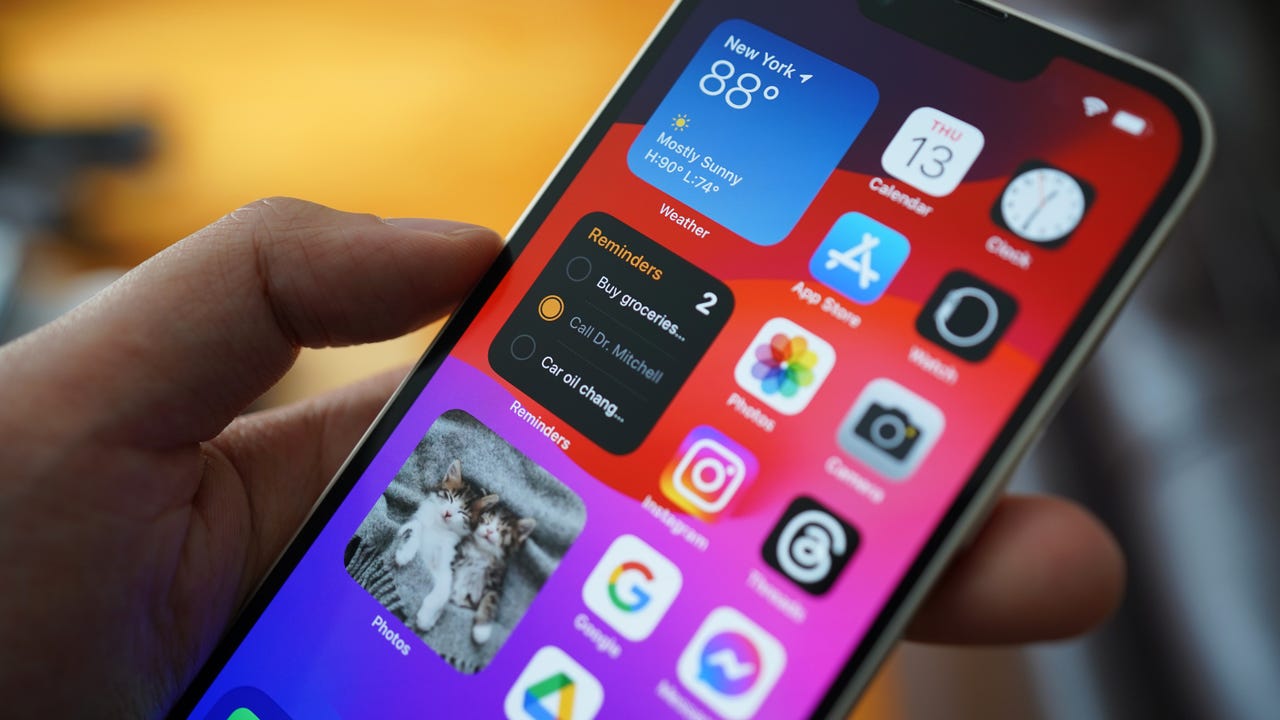
Why is Your iPhone XS Max Internet So Slow?
There could be several reasons why your iPhone XS Max internet is running slow. Here are some possible explanations:
1. Poor network signal: If you are in an area with weak network coverage or where the signal strength is low, it can result in slow internet speeds. This can be especially noticeable in crowded areas or buildings with thick walls that might block the signal.
2. Network congestion: During peak usage times, such as in the evenings or in busy areas, the network can become congested with a high number of users, resulting in decreased internet speeds for everyone. This is more common in densely populated areas.
3. Outdated software: Running outdated software on your iPhone XS Max can cause performance issues, including slow internet speeds. Make sure you have the latest iOS version installed on your device to ensure optimal performance.
4. Background apps or processes: If you have several apps running in the background or processes that require internet access, they can consume your internet bandwidth and slow down your overall internet speed. Close unnecessary apps or restart your device to free up resources.
5. Wi-Fi connection issues: If you are connected to a Wi-Fi network, it’s possible that there are connectivity issues with the network itself. Try restarting your router or connecting to a different Wi-Fi network to see if the problem persists.
6. Overloaded cache and data: Over time, your iPhone’s cache and data can accumulate, causing it to slow down. Clearing your cache and deleting unnecessary data, such as old messages, photos, or apps, can help improve internet speed.
7. Limited storage space: If your iPhone XS Max is running out of storage space, it can impact its overall performance, including internet speeds. Delete unused apps, photos, and files to free up storage and optimize your device’s performance.
8. Battery health: If your iPhone’s battery health is degraded, it can affect its performance, including internet speeds. Consider getting the battery replaced if it’s significantly degraded.
9. VPN or proxy usage: If you are using a VPN or proxy service on your iPhone XS Max, it can sometimes cause slower internet speeds due to the encryption and routing processes involved. Try disconnecting from the VPN or proxy and see if the speed improves.
10. Hardware issues: In some cases, hardware issues, such as a faulty antenna or modem, can cause slow internet speeds. If you have tried all the above steps and are still experiencing slow internet, it may be worth contacting Apple or visiting an authorized service center to have your device checked.
Remember, these are just possible reasons for slow internet on your iPhone XS Max, and the actual cause may vary. It’s always a good idea to troubleshoot and eliminate the most common issues before seeking professional help.
Why is the Internet Slow on iPhone X?
The slow internet speed on your iPhone X can be attributed to several factors:
1. Weak Wi-Fi signal: If your iPhone X is far away from the Wi-Fi router or there are obstructions between the device and the router, it can result in a slow internet connection.
2. Network congestion: If you are in a crowded area with many devices connected to the same network, it can lead to slower internet speeds for everyone, including your iPhone X.
3. Outdated iOS: Running an outdated version of iOS on your iPhone X can cause compatibility issues with certain apps and services, resulting in slow internet speeds. Make sure to regularly update your iOS to the latest version available.
4. Background apps and processes: If you have numerous apps running in the background or automatic updates enabled, they can consume your device’s resources and slow down the internet speed. Closing unnecessary apps and disabling automatic updates can help alleviate this issue.
5. Cache and cookies: Accumulated cache and cookies in your device’s browser can also contribute to slower internet speeds. Clearing the cache and cookies periodically can help improve the browsing experience.
6. VPN usage: If you are using a VPN (Virtual Private Network) on your iPhone X, it can introduce additional encryption and routing processes, which may result in slower internet speeds. Consider disconnecting from the VPN when high-speed internet is required.
7. Faulty DNS settings: DNS (Domain Name System) translates website addresses into IP addresses. If your iPhone X has incorrect or slow DNS settings, it can impact internet speed. Resetting your network settings or using alternative DNS servers can help resolve this.
8. Overloaded storage: A device with limited storage space can experience performance issues, including slow internet speeds. Ensure you have enough storage available on your iPhone X by regularly deleting unnecessary files, photos, and apps.
9. Hardware limitations: Although less common, hardware issues can also contribute to slow internet speeds on your iPhone X. If none of the software-related solutions mentioned above improve the internet speed, it may be worth considering a diagnostic check or contacting Apple support for further assistance.
Remember, a combination of these factors or other factors not mentioned can contribute to a slow internet speed on your iPhone X. It’s essential to troubleshoot each potential cause to identify and resolve the issue.
Why is Your iPhone XS Max So Laggy?
The laggy performance of your iPhone XS Max could be attributed to a couple of factors:
1. Low Battery Health:
– A deteriorating battery can affect the overall performance of your device.
– Check your battery health by going to Settings, then tapping on Battery > Battery Health.
– If the battery health is below 80%, it may be advisable to consider replacing the battery.
2. Insufficient Storage Space:
– When your iPhone’s storage space is almost full, it can lead to sluggish performance.
– Go to Settings and tap on General > iPhone Storage to check the available storage.
– If you have limited storage space, try freeing up some by deleting unnecessary apps, photos, or videos.
3. Outdated Software:
– Using an outdated iOS version can also cause laggy performance.
– Check for any available software updates by going to Settings > General > Software Update.
– If an update is available, install it to potentially improve your device’s performance.
4. Background Apps and Processes:
– Running multiple apps or processes simultaneously in the background can consume system resources and slow down your device.
– Double-press the home button (or swipe up from the bottom on newer models) to access the app switcher and close any unused apps.
– Additionally, you can disable background app refresh for certain apps by going to Settings > General > Background App Refresh.
5. Overloaded Cache and Junk Files:
– Accumulated cache and junk files can also contribute to a laggy iPhone.
– Consider clearing cache and deleting unnecessary files by using third-party cleaning apps or by offloading unused apps in iPhone Storage settings.
6. Hardware Issues:
– In some cases, hardware issues such as faulty components or water damage can affect the performance of your iPhone.
– If you have tried the above steps and the laggy performance persists, it may be worth contacting Apple Support or visiting an authorized service center for further assistance.
Remember, addressing these potential causes can help improve the performance of your iPhone XS Max and reduce lag.
Why is Your iPhone X So Slow and Laggy?
There are several factors that could contribute to your iPhone X being slow and laggy. Here are some possible reasons:
1. Background apps: Having too many apps running in the background can consume system resources and slow down your iPhone. Close unnecessary apps by double-clicking the home button (or swiping up from the bottom on iPhone X) and swiping them away.
2. Problematic apps: Some apps may be poorly optimized or have bugs that can cause your iPhone to lag. Update your apps regularly to ensure you have the latest bug fixes and performance improvements. If a specific app is causing issues, try uninstalling and reinstalling it.
3. Low storage space: When your iPhone’s storage is almost full, it can slow down the device. Delete unnecessary files, photos, and apps to free up space. You can check your storage usage in Settings > General > iPhone Storage.
4. Low battery: If your iPhone’s battery is running low, it can affect its performance. Make sure to keep your iPhone charged or consider replacing the battery if it is old or degraded.
5. Junk files: Over time, your iPhone accumulates temporary files and junk data that can slow it down. You can use cleaning apps or manually clear cache and temporary files in Settings > Safari > Clear History and Website Data.
6. Software updates: Updating your iPhone’s operating system to the latest version can often improve performance and fix bugs. Check for updates in Settings > General > Software Update.
7. Hardware limitations: Older iPhone models may not be as powerful as newer ones, leading to slower performance. If you have an older model, it may struggle to handle newer apps and features.
Remember, if none of these solutions improve the performance of your iPhone X, it’s recommended to contact Apple Support or visit an authorized service center for further assistance.
Conclusion
If you are experiencing slow performance with your iPhone X Max, there are several potential causes to consider. It is important to check the battery health and storage space of your device, as these can greatly impact its speed and overall functionality. If the battery health is below 80%, it may be necessary to replace the battery to improve performance. Additionally, ensuring that you have enough storage space and regularly deleting unnecessary files can help optimize your iPhone’s speed. It is also important to keep your iOS and apps up to date, as outdated software can lead to slower performance. Lastly, be mindful of the number of apps running in the background and consider closing unnecessary ones to free up system resources. By addressing these potential issues, you can help improve the speed and performance of your iPhone X Max.






